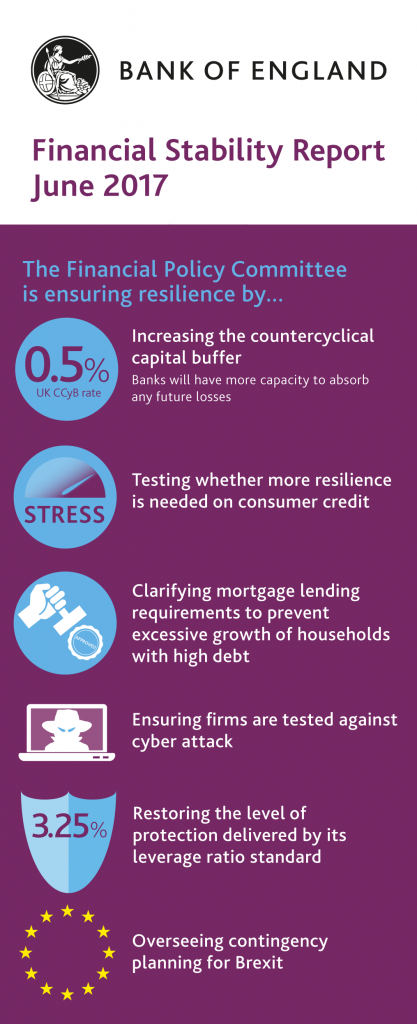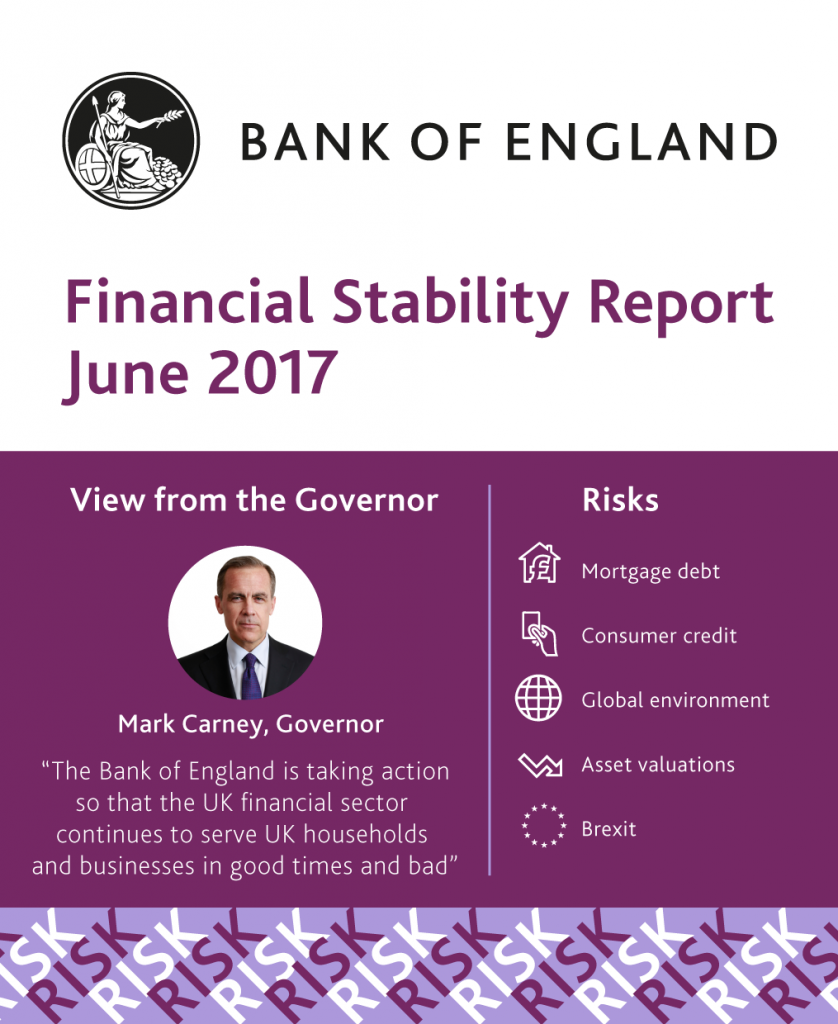By Donna Kehoe, Bank of England agent for the South West of England
Twice a year the Bank of England publishes a major review of what we call the ‘financial stability’ of the nation.
Our aim is to ensure that the financial system is as robust as it can be to withstand whatever shocks could head its way.
That’s important for all of us – households and businesses – here in the South West who rely on the services provided by banks, building societies and other financial institutions.
For example, in my role as agent for the South West, several not-for-profit organisations and businesses in have recently spoken to me about how some of the families they work with – and some employees – are exposed to possible increases in the cost of borrowing.
To be clear, the Financial Stability Report isn’t a series of warnings about what the Bank thinks is likely to happen. 
Instead the Financial Policy Committee, which writes the report, is concerned about so-called ‘tail risks’ – or worst-possible scenarios.
The latest report assesses possible risks from a wide variety of sources both at home and abroad.
And overall the picture is an encouraging one: over the past eight years the resilience of the UK financial system has been significantly increased.
For example, losses that would have wiped out the UK banking system in 2006 could now be absorbed relatively easily. But the job is never done and new risks are always emerging. So the Financial Policy Committee is always alert to the dangers lurking around the corner.
And, in spite of a relatively stable risk-environment overall, there are pockets of concern.
We’ve seen in the past how the housing market can quickly create problems for the wider economy.
There is some evidence that, encouraged by very low levels of arrears, some lenders have eased the conditions on mortgage lending.
The Bank needs to ensure that this doesn’t spark a rise in unsustainable debt as householders take on mortgages they can’t afford if interest rates start to rise or unemployment increases.
So the committee has reinforced some rules around mortgage lending which should guard against this risk.
Another feature of the economy recently has been a big increase in consumer credit, especially on credit cards, personal loans and car finance.
Whilst losses on these loans are currently low, they do pose a risk to lenders, especially since such losses can materialise relatively quickly.
The latest report outlines a number of measures to address these risks. Some – such as a requirement that banks increase the amount of capital that they hold as a buffer against any shocks – will increase resilience in the sector generally.
And the committee is bringing forward planned tests on lenders’ ability to withstand losses on consumer credit in particular. Depending on the results it may then decide on further measures to address this issue.
Then there is Brexit. There are, of course, a range of possible outcomes from the negotiations that are now underway which will determine the terms, conditions and timetable for Britain’s departure from the EU.
The committee is now overseeing contingency planning to mitigate risks associated with Brexit, especially in the event of the UK leaving without a new deal in place.
I’ve not attempted to cover all of the risks that are addressed in the report, though full details are available in the online edition here. It talks in some detail, for example, of risks from overseas such as China, and the rising threat of cyber-crime.
Over the coming weeks and months, the Bank’s agents will be discussing how these issues and others are impacting on the lives of people across the UK.
Here in the South West we’ll be undertaking our usual regular conversations with businesses, charities and other organisations to listen to the concerns of people in our region. It’s what we do every day – and the messages we pick up are fed directly into the Bank’s policymakers in London.
As well as our usual conversations, we also have senior people visiting the region regularly to hear directly from business, charities and education organisations. For example, Alex Brazier, who heads our financial stability area, will be visiting Bristol next month and will be speaking to a number of different organisations.
For now, however, the message is clear: The Bank is doing what it can to support the UK’s financial stability and ensure that households and businesses can rely on our financial sector to deliver the services upon which we all depend.
BoESouthWest















